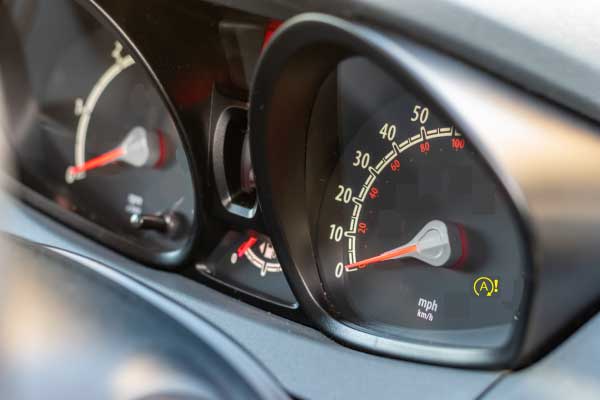EPA Looks to Pull the Plug on Start-Stop Credits: What It Could Mean for Drivers and Automakers
🔍 From Fuel Saver to Frustration: Why the EPA Is Reconsidering Start-Stop Credits
The Environmental Protection Agency (EPA), led by Lee Zeldin, has proposed a change that could alter the landscape for automakers: eliminating fuel economy credits for start-stop engine systems. These systems, once hailed as an easy way to meet efficiency benchmarks, are now being reconsidered as federal regulators take a closer look at their real-world benefits-and the headaches they cause for some drivers.
While the new rules, eliminating this technology as a credit item for figuring fuel efficiency are not yet finalized, this proposed move reflects a growing wave of consumer frustration with the practical downsides of start-stop systems.
⚙️ What Is Start-Stop and Why Was It Credited?
Start-stop systems automatically shut off a car's engine when it comes to a complete stop-like at a traffic light-and restart it when the driver releases the brake. It's a concept that was just starting to appear in a few niche models a decade ago. Today, it's nearly everywhere, built into the majority of new vehicles sold.
The EPA granted automakers "off-cycle" credits for implementing the system-meant to reward efficiency technologies not captured by standard lab testing for fuel economy. According to the Society of Automotive Engineers (SAE) these systems can improve fuel economy by 7.27% when using Federal Test Procedures. Though they did mention that " It was found that the fuel economy improvement varied significantly between drive cycles depending on the amount and percentage of idle time during the test." But now, the EPA is signaling that it no longer believes this system deserves special recognition under its rules.
🛑 What the EPA Proposal Means
The EPA's current proposal would eliminate the ability for automakers to claim efficiency credits for vehicles equipped with start-stop technology. In a move described as cutting "climate participation trophies," regulators argue that the benefits of these systems are overstated-and not impactful enough to warrant extra compliance flexibility.
The prosses is underway to make these changes, so look to see this feature fade away with final regulations expected to.
😠 Real-World Complaints from Drivers
While the technology may look good on a spreadsheet, owners of some vehicles have been left frustrated. A few of us here at the various Vermont Auto Mart stores have worked at new car dealerships in the past-including Chrysler and Dodge stores-and we saw firsthand just how often start-stop systems became a headache for customers. Vehicles with the dual 12-volt battery setups, like certain Jeep and Dodge models, would come in with issues that usually traced back to the smaller auxiliary battery. But the fix wasn't always simple-many times, both batteries needed replacing.
Common complaints with the systems include:
- Rough or delayed acceleration when the engine restarts
- Weakened air conditioning or heating during idle
- Increased wear and tear on starters and a noticeable shortening of battery life
- High repair costs, particularly in dual-battery systems

🔧 What's Next for Automakers and Consumers?
Without EPA credits on the table, automakers may begin rethinking the inclusion of start-stop systems in future models. While it's still an easy way to incrementally reduce emissions and fuel consumption, costs, customer satisfaction and reliability are also increasingly important.
As for consumers, this proposal is a reminder to ask questions-especially when buying used vehicles in Vermont and New Hapshire with start-stop systems. Here are some items to consider:
- Be aware of additional maintenance needs, especially if your vehicle uses multiple batteries.
- Watch for warning lights or messages related to the start-stop system.
- Make sure your repair shop's technicians know how to properly reset and configure intelligent battery sensors after repairs.
🏁 The Road Ahead: Is This the End of Start-Stop as We Know It?
Start-stop systems were supposed to be a quiet revolution in fuel efficiency-and to some degree, they were. But over time, the realities of ownership-higher repair costs, system glitches, and battery headaches-have worn on drivers. The EPA has indicated they have noted those frustrations and suggests that it's time to put this idea to rest.
At Upper Valley Auto Mart in White River Junction, Vermont, we help our customers understand how today's automotive technology impacts both their used car ownership experience and their long-term vehicle costs. Whether you're shopping for a reliable pre-owned SUV or need advice on how the start-stop system works when you are looking for a used car, truck or SUV for sale in the White River Junction area and surrounding communities in Vermont and New Hampshire, our team is here to help.
🔎 Looking for a quality used vehicle for sale with fewer maintenance headaches? Shop our inventory at Upper Valley Auto Mart.
 |
Search our inventory. Choose your next vehicle and schedule your test drive online.
 Published May 13, 2025
Published May 13, 2025
